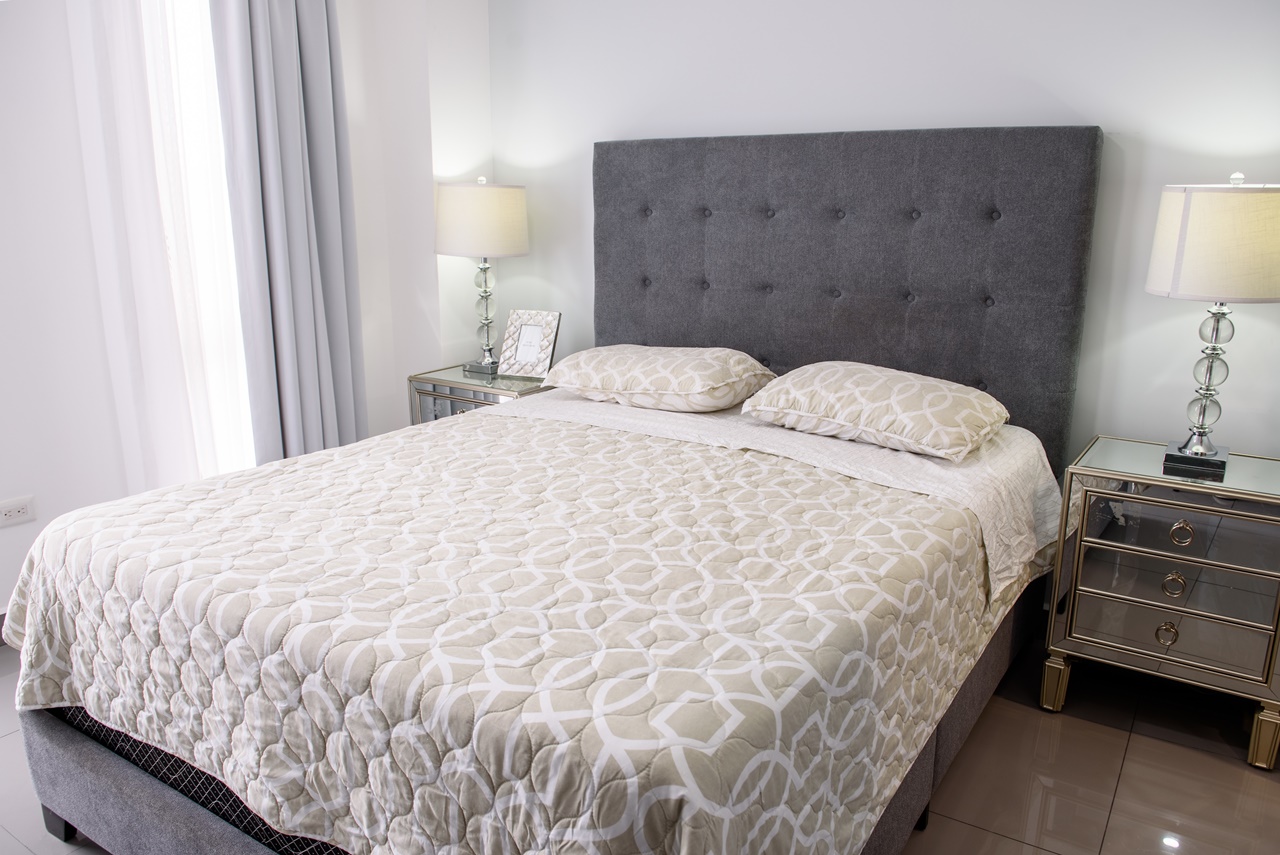A good night’s sleep is essential for our overall health and well-being. However, for those with allergies or sensitivities, achieving a restful slumber can be a constant struggle. The right bedding can make a world of difference, and linen duvet covers have emerged as a natural and sustainable solution that caters to both comfort and allergy management. In this article, we’ll explore how linen duvet covers can help allergy sufferers achieve a better night’s sleep, all while embracing eco-friendly practices.
Understanding Allergies and Bedding:
Before we delve into the benefits of linen duvet cover for allergy sufferers, it’s crucial to understand the connection between allergies and bedding. Allergies are triggered by various allergens, such as dust mites, pollen, pet dander, and mold. These allergens can easily accumulate in bedding, including duvet covers, pillows, and sheets, making the bedroom a potential hotbed for allergy symptoms.
Common allergic reactions to these allergens include sneezing, runny nose, itchy or watery eyes, and congestion. For those with asthma, exposure to allergens can exacerbate symptoms and lead to more severe health issues. To alleviate these symptoms and promote a healthier sleep environment, allergy sufferers often seek hypoallergenic bedding options.
Why Linen for Allergies?
Linen duvet covers have gained recognition among allergy sufferers due to their natural properties that make them an excellent choice for reducing allergen exposure:
- Hypoallergenic: Linen is naturally hypoallergenic, meaning it is less likely to trigger allergic reactions. Unlike synthetic materials that can trap allergens, linen’s smooth and breathable surface minimizes the retention of dust mites, pet dander, and other common allergens.
- Moisture-Wicking: Linen has moisture-wicking properties, which means it absorbs moisture from the body and allows it to evaporate quickly. This prevents the growth of mold and mildew, two common allergen sources.
- Breathability: Linen’s breathability ensures proper ventilation, reducing the humidity levels in your bedding. This, in turn, discourages the proliferation of dust mites, which thrive in humid environments.
- Antimicrobial: Linen has natural antimicrobial properties that inhibit the growth of bacteria, further reducing the risk of allergen buildup.
- Durable and Easy to Clean: Linen is a durable fabric that can withstand regular washing, making it easier to keep your bedding clean and allergen-free. It does not lose its hypoallergenic properties with frequent laundering, unlike some synthetic materials.
Tips for Choosing the Right Linen Duvet Cover:
To maximize the benefits of linen duvet covers for allergies, consider the following tips when selecting the perfect one:
- Quality Matters: Invest in high-quality linen duvet covers made from pure flax fibers. European linen, particularly from regions like Belgium and France, is often regarded as some of the best in terms of quality and softness.
- Thread Count: Although thread count is less critical for linen than for materials like cotton, a higher thread count typically indicates a finer, smoother linen. A finer linen fabric may be preferred for its comfort against sensitive skin.
- Pre-Washed or Stonewashed: Pre-washed or stonewashed linen duvet covers are softer and have a relaxed, lived-in feel. This added softness can be particularly comfortable for those with allergies.
- Light Colors: Light-colored linen duvet covers not only exude a clean and airy vibe but also tend to show fewer stains and allergen particles, making them a practical choice for allergy sufferers.
- Certifications: Look for linen duvet covers that have been tested and certified as hypoallergenic or allergen-free. Additionally, consider OEKO-TEX certification to ensure that the linen has been tested for harmful substances.
Maintaining Your Linen Duvet Cover:
To keep your linen duvet cover in excellent condition and free from allergens, follow these care guidelines:
- Regular Washing: Linen duvet covers are machine-washable, but always adhere to the manufacturer’s care instructions. Use a gentle detergent and cold or lukewarm water to prevent damage to the fabric.
- Gentle Cycle: Opt for a gentle or delicate cycle on your washing machine to minimize friction and wear on the fabric.
- Line Dry or Tumble Dry Low: While linen can be tumble-dried on low heat, it’s recommended to line dry your linen duvet cover for the best results. This helps maintain the fabric’s natural texture and softness.
- Ironing: Linen naturally wrinkles, which adds to its charm. However, if you prefer a smoother appearance, you can iron the duvet cover while it’s slightly damp using a medium-hot iron.
- Storage: When storing your linen duvet cover, ensure it’s clean and entirely dry. Store it in a cool, dry place to prevent mold or mildew growth.
Sustainability and Linen:
Beyond its allergy-friendly properties, linen is celebrated for its sustainability. Choosing linen duvet covers aligns with eco-conscious practices for several reasons:
- Natural Fiber: Linen is derived from the flax plant, a renewable resource that requires minimal water and pesticides to grow. This makes it a more environmentally friendly choice compared to some other materials.
- Biodegradable: Linen is biodegradable, meaning it decomposes naturally, reducing its impact on landfills and the environment.
- Longevity: Linen duvet covers are durable and can last for many years, reducing the need for frequent replacements and the resulting waste.
- Minimal Processing: Linen requires minimal chemical processing compared to some synthetic materials, contributing to a lower environmental footprint.
In Conclusion:
For allergy sufferers seeking a better night’s sleep and a more sustainable bedding option, linen duvet covers offer a natural and eco-friendly solution. Their hypoallergenic properties, moisture-wicking abilities, and breathability make them a top choice for reducing allergen exposure in the bedroom. With proper care and consideration of quality, you can enjoy the comfort and peace of mind that linen duvet covers provide, all while contributing to a more sustainable and allergy-friendly home.

